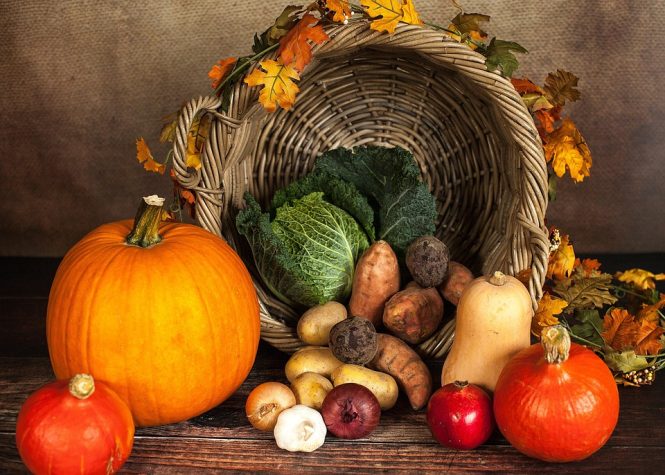
Fuel Your Passion: A Vegan Nutrition Plan for Athletes and Fitness Enthusiasts
As the world of sports and fitness continues to evolve, a growing number of athletes and fitness enthusiasts are turning to veganism as a way to optimize their performance and support their overall health. A well-planned vegan diet can provide all the necessary nutrients for athletes to thrive, and with the right guidance, it’s easier than ever to fuel your passion for fitness with plant-based nutrition.
The Benefits of Veganism for Athletes
A vegan diet has been shown to have numerous benefits for athletes, including:
- Improved recovery: A vegan diet rich in antioxidants and polyphenols can help reduce muscle inflammation and improve recovery after exercise.
- Increased energy: Plant-based sources of iron, such as beans and lentils, can help increase energy levels and reduce fatigue.
- Enhanced endurance: A vegan diet high in complex carbohydrates, such as whole grains and fruits, can help sustain energy levels during endurance activities.
- Better digestion: A vegan diet tends to be high in fiber, which can help support healthy digestion and reduce the risk of gastrointestinal issues during exercise.
Key Nutrients for Vegan Athletes
While a vegan diet can provide all the necessary nutrients for athletes, there are a few key nutrients to pay particular attention to:
- Protein: Vegan sources of protein include beans, lentils, tofu, tempeh, and seitan. Aim for 1.2-1.6 grams of protein per kilogram of body weight per day.
- Iron: Iron is essential for transporting oxygen to the muscles. Vegan sources of iron include beans, lentils, dark leafy greens, and fortified cereals.
- Calcium: Calcium is crucial for bone health. Vegan sources of calcium include fortified plant milk, dark leafy greens, and tofu.
- Vitamin B12: Vitamin B12 is essential for energy production and nerve function. Vegan sources of vitamin B12 include fortified plant milk, cereals, and supplements.
- Omega-3 fatty acids: Omega-3 fatty acids are important for heart health and inflammation reduction. Vegan sources of omega-3s include flaxseed, chia seeds, and walnuts.
A Sample Vegan Nutrition Plan for Athletes
Here’s a sample 7-day meal plan for vegan athletes:
Monday:
- Breakfast: Overnight oats with fruit and nuts
- Lunch: Whole grain wrap with hummus, avocado, and vegetables
- Dinner: Quinoa and black bean bowl with roasted vegetables
Tuesday:
- Breakfast: Smoothie bowl with banana, spinach, and almond milk
- Lunch: Lentil soup with whole grain bread
- Dinner: Grilled tofu with roasted sweet potatoes and green beans
Wednesday:
- Breakfast: Whole grain toast with almond butter and banana slices
- Lunch: Chickpea salad with whole grain crackers
- Dinner: Vegan stir-fry with tofu, brown rice, and mixed vegetables
Thursday:
- Breakfast: Whole grain cereal with fortified plant milk and sliced banana
- Lunch: Whole grain pita with hummus, cucumber, and tomato
- Dinner: Grilled portobello mushrooms with roasted vegetables and quinoa
Friday:
- Breakfast: Smoothie with banana, spinach, and almond milk
- Lunch: Whole grain wrap with avocado, tomato, and mixed greens
- Dinner: Vegan curry with brown rice and naan bread
Saturday:
- Breakfast: Whole grain waffles with fruit and nuts
- Lunch: Lentil and vegetable stew with whole grain bread
- Dinner: Grilled tofu with roasted asparagus and quinoa
Sunday:
- Breakfast: Whole grain pancakes with fruit and maple syrup
- Lunch: Chickpea and avocado salad with whole grain crackers
- Dinner: Vegan chili with brown rice and whole grain cornbread
Tips for Implementing a Vegan Nutrition Plan
- Consult with a registered dietitian: A registered dietitian can help you create a personalized nutrition plan that meets your specific needs and goals.
- Eat a variety of whole foods: Focus on whole, minimally processed foods, including fruits, vegetables, whole grains, legumes, and nuts.
- Stay hydrated: Adequate hydration is essential for athletic performance. Aim for at least 8-10 glasses of water per day.
- Monitor your nutrient intake: Keep track of your daily nutrient intake to ensure you’re meeting your needs.
- Be patient and flexible: It may take some time to adjust to a new nutrition plan. Be patient and flexible, and don’t be afraid to make adjustments as needed.
Conclusion
A well-planned vegan diet can provide all the necessary nutrients for athletes to thrive. By focusing on whole, plant-based foods and paying attention to key nutrients, vegan athletes can optimize their performance and support their overall health. With the right guidance and a little creativity, it’s easy to fuel your passion for fitness with a delicious and nutritious vegan nutrition plan. Whether you’re a professional athlete or a fitness enthusiast, a vegan diet can help you achieve your goals and live a healthier, more sustainable lifestyle.